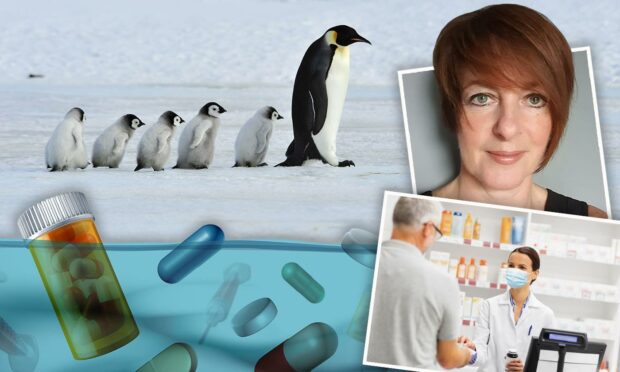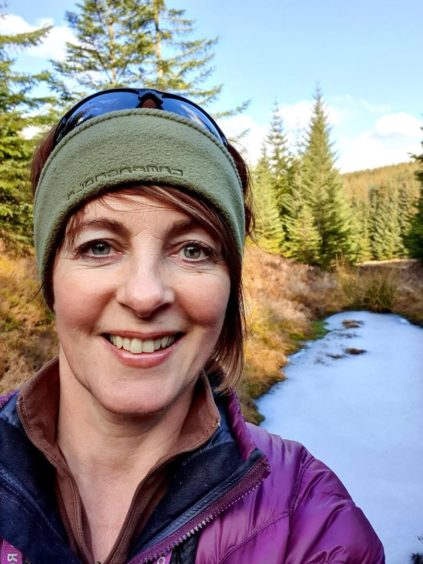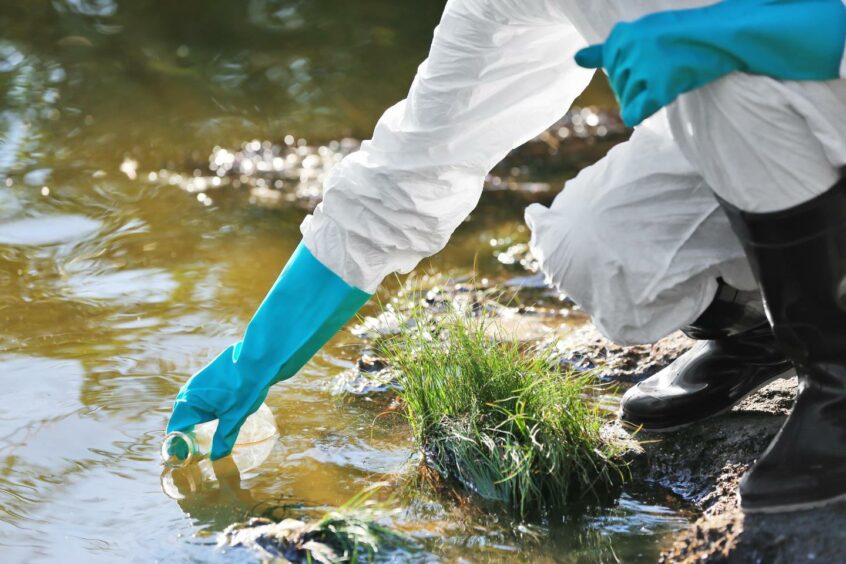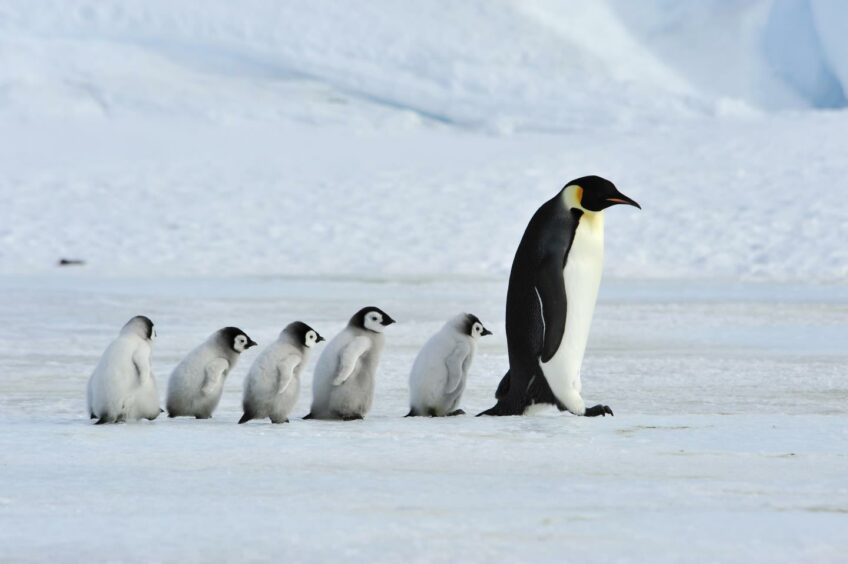Sharon Pfleger is a remarkable woman.
The NHS worker not only helps sick people get better but she’s tackling the worrying issue of pollution caused by the pharmaceutical industry too.
And her work is so influential that she’s become one of 100 women from around the world chosen to take part in an ambitious leadership programme working to solve the planet’s greatest challenges.
In an interview with the Press and Journal and Evening Express Sharon shares:
- How her work is helping GPs prescribe drugs that cause less damage to the environment
- Her life-changing experience taking part in the Homeward Bound leadership programme – she’s even helped to save the lives of penguins
- How medicines used in hospitals could be polluting our seas and rivers
- Her top tips on how you can help reduce prescription drug pollution on the environment too
The prescription drugs leaking into our rivers
Sharon spent many years working in pharmacies before realising the impact prescription drugs have on the environment.
She was shocked to discover medicines have such a dramatic effect on marine animals – changing their behaviour and even their ability to reproduce.
Now Sharon, who lives in Alford in Aberdeenshire, is working hard to educate the public, GPs and other medics on the dangers of common drugs.
The consultant in pharmaceutical public health was recently involved in a pilot scheme to find out how work in hospitals can pollute the environment.
In the NHS, we use medicines to treat our population to make them better. But we’re actually making our planet sicker at the same time.
Tests carried out on the water system at Caithness Hospital in the Highlands revealed traces of seven common prescription drugs. Painkillers, antidepressants and antibiotics were found and some of the drugs were found in the water being discharged from the treatment plant back into our rivers.
“All of those medicines have been found to have an effect in the aquatic environment once they get into water,” Sharon explained.
“They can have lots of different effects. Some medicines can change the reproduction of aquatic creatures, some change their physiology and some change their behaviour.”
How the pills we swallow can damage the environment
But the NHS Highland worker also highlighted how one of the biggest impacts of pharmaceuticals on the planet is their ability to drive antimicrobial resistance.
This causes bacteria and viruses to change over time and no longer respond to medicines – making our infections harder to treat.
“It’s really important that we take care of antibiotics and we don’t use too many, ” Sharon said.
“Many people think that you need an antibiotic for a cough and colds, but you don’t because antibiotics don’t work on viruses.
“And quite often people think ‘I’m feeling better so I’ll not bother finishing the course’ but it’s really important because, if you don’t, you can actually make microbial resistance worse.”
You might be wondering how the drugs we swallow can have such an impact on the environment but Sharon explains that around 30% of our medication ends up going down our toilets after being used up in our bodies.
“The toilet water ends up in our wastewater treatment centres,” she says. “And it’s difficult for all our water companies to actually remove all the pharmaceuticals that we use.”
From helping humans to saving penguins
Sharon, who has also worked with the School of Pharmacy at Robert Gordon University for more than a decade, was selected for Homeward Bound last year.
The initiative aims to build a team of 1,000 women in science from around the world over the next ten years to influence policy and decision-making as it shapes our planet.
She’s the first person from the NHS to be selected for the programme which includes a three-week expedition to Antarctica to see the effects of climate change.
During this expedition, the women will be shown how far glaciers have retreated forcing many marine animals to move their homes.
Sharon, 55, describes the Homeward Bound programme as “life-changing”.
Meeting with other scientific experts from across the globe has helped her move forward with her goal to show how medicines are polluting the environment.
“With my work around pharmaceuticals and the environment it’s been really useful for me to get my message across to people because not many people actually know about it,” she said.
Sharon previously set up the One Health Breakthrough Partnership, which works with environmental bodies to reduce pharmaceutical pollution.
And while doctors prescribe drugs based on their effectiveness and value for money, she wants their impact on the planet to also be considered.
“In the NHS, we use medicines to treat our population to make them better. But we’re actually making our planet sicker at the same time.
“So we’ve got a social and a moral responsibility as providers of health care to make sure not just that we keep our patients well, but that we also do the best for our planet.
“I’ve found women on the programme who can help me, because with all of these huge climate change issues, no one person, or organisation, can fix them on their own. It absolutely needs collaboration and good leadership.
“Just today I’ve been helping someone from Saudi Arabia work out how to save penguins.
“You come across different things on your desk every day.”
How you can help
Sharon has shared some advice on how we can all help to protect the planet from pharmaceutical pollution.
- Only ask your GP or pharmacist for a medicine if you think you need it
- Order the drugs you need when you need them
- Store medicines properly to prevent them being damaged. They’re best stored in a cool, dry place rather than in the bathroom cabinet, where there can be steam, or in a cupboard next to a hot cooker.
- Dispose of medicines safely by returning them to your local pharmacy rather than throwing them in the bin or down the toilet
Eight women from the UK have been selected for the Homeward Bound leadership programme and are currently fundraising for the climate change expedition.
Between them they’re walking, running and cycling 16,000km – the equivalent of the distance from Aberdeen to Antarctica.
If you want to donate to Sharon’s fundraising page visit: https://chuffed.org/project/sharonpfleger
More health news…
Six ways to beat winter boredom: Tips from psychologists



